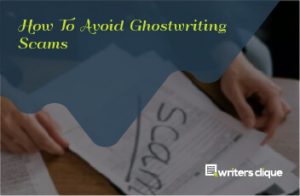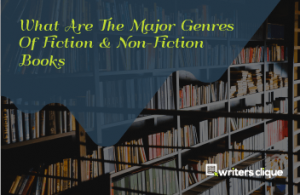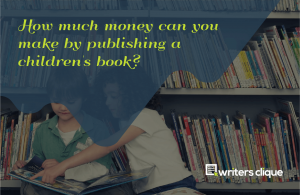Writers dislike the word ‘genre.’ Bookworms really love it. This is because genre develops desires. Can a character fly, transform, and fall head over heels in love? Meeting these expectations is up to you! But it’s interesting to be able to tell the story to agencies that offer fiction writing services, publishing agents, and readers first, in an overarching genre that sells first.
There is nothing broader or more profound than the word “book.” There are many types of book genres. For example, you may have one or more favorite genres, but do you really know all genres of fiction and nonfiction books?
So, let’s first understand what fiction and nonfiction are.

What Is Fiction & Non-Fiction?
Both types of creative writing are popular, but there is a fundamental difference between them.
Writing a ‘fiction’ book can only come from the writer’s imagination. It relies on the author and how he/she wants the writing to develop. Fiction is an imaginary story that does not exist in the real world.
Fiction is imagined works with actions, characters, and explanations. Fiction is impractical, so the writer can devise any idea that doesn’t get his head spinning. Through fiction writing, the author gives the reader a glimpse into a world of fantasy and creativity. Authors visualize the whole story, characters, actions, and discussion. There is no wrong or good when it comes to writing a fiction book.
Now, it’s time to discuss the nonfiction genre briefly.
Nonfiction is a genre of literature that speaks about realities that may be relevant to memoirs, real events, or education. When writing nonfiction, the prominence is on simplicity and clarity. The purpose of writing nonfiction is to learn or deepen your knowledge of a particular subject. Nonfiction works include news biographies, memoirs, workbooks, and how-to guides.
The Seven Major Genres In Fiction.
The seven major fiction genres are mentioned below that almost everyone is aware of.
Romance:
Most people who read today will associate with this genre. The stories in this genre are about a romantic connection between leading characters. These stories are considered by desire, sensory tension, sentiment, fight, etc. For the most part, the writers have separated the characters with an emotionally filling and cheerful ending. This genre has sub-genres, such as historical romance, contemporary romance, paranormal romance, and more.
Fantasy:
This is a genre of fiction where fairy-tale and mystical ingredients form the story’s main plot, including characters of brave adventure, battle, and more. The plot of a fantasy story is boundless, as anything is possible in this genre.
Fantasy is popular with children and adults. The goal is meek: it allows the reader to flee from daily life and realism. Your imagination will take you to another world as you read about flying animals and talking squirrels. Forget the worries of work, chores, and homework. That’s probably why young and old who like to reread their favorite fairy tales remember it.
Science Fiction (Sci-Fi)
Science fiction, also known as Sci-Fi, uses technical facts and concepts to bring the main plot of the story. Like fantasy, sci-fi has fiction, such as traveling into the future and parallel worlds. Circumstances that take place in the story are described; the author of sci-fi stories has to do a lot of research on scientific truths when writing a sci-fi book.
The facts should be as close to the story as possible to make them sound real. Even if the story is imaginary, it has to be understandable. Science fictions show the use of automatons, UFOs, laboratories, and more. A famous example in science fiction is Dune by Frank Herbert.
Mystery:
Mystery is one of the major genres with a considerable following. The story in this book focuses on crime, usually homicide and assassination. The operation tends to concentrate on dastardly detectives trying to solve the mystery. The climax is generally at death’s door, in a quiet setting where all the secret elements are neatly folded for the reader’s convenience.
Solutions, as well as surprises, are brought to heroes and readers. The mystery sub-genres include detective, investigator, and a murder or crime case. You can find an extensive group of writers’ associations, conferences, and publications to help mystery writers develop their expertise.
Historical Fiction:
Historical fiction is a genre in which stories affect a bygone period. It is exciting because it presents a way of life unknown to the current generation and often illustrates the involvements and experiences of famous historical personalities and mysterious things that happened years ago. It sounds like a great way to explore another world, but it’s not just amusement. Becoming a Historical Fiction writer takes a lot of concern.
Suspense/Thriller:
We all should agree that a suspenseful story is too good to be missed. A reader does not know the outcome after every scene; this is where a suspense/thriller story starts. This genre includes things like twists, deals, shreds of evidence, fears, distresses, and shocks. As an author, one can expand them with stories, titles, characters, or plots and even choose the words to describe them. A book like this is hard to say no to. Today’s most popular thriller/suspense book is The Silent Patient by Alex Michaelides.
Horror:
Filled with bone-chilling horror, this one of the major fiction genres will make readers turn the pages. From the author’s point of view, it is characterized by intentionally using conscious and subconscious fears to scare readers. These are terrifying, high-profile stories of chases and escapes. The hero must defeat the paranormal or whizzes. The sub-genre of horror is occult and always uses antagonists like Devil’s type.
The Seven Major Genres In Non-Fiction.
The abovementioned are the seven major genres in fiction, so now let’s read about the major genres in nonfiction.
Memoirs, Biography & Autobiography:
If you’re reading this blog, I bet you’ve just started your book publishing quest, and you’re probably writing your own book or hiring a nonfiction writing service to write your book.
Well, this nonfiction subgenres focuses on life stories on specific topics. For example, a biography is written in the third person, about a person’s personal life and experience but not about the author. For example, an author can write his own memoir and autobiography. Autobiographies and memoirs are always written by people who are alive at the time of writing, but biographies can describe people who are alive or dead.
How-to Guides & Technical Books:
Whether in reality or in a book, you can explore your joy and comfort zone if you’re not good at connecting with people. No function. There is no emotional situation. No conspiracy. However, complete instructions for performing a specific task or complete information on a specific topic.
These types of nonfiction genres are often used as reference material and can also be found in workplaces, hospitals, libraries, and more. Regrettably, only people interested in reading manuals or how-to guides will purchase and read them. So, I think there is no way out. We need to understand how people reflect and work so that we can make textbooks in a way that is suitable for them.
Journalism:
Journalism is considered a far-reaching subgenre in nonfiction that includes many media. It is most often used in the form of magazines, TV news, newspapers, etc. It often (but not always) tells actual events relevant to modern audiences.
Nowadays, journalism is shared with the general audience through books. This consist of narrative nonfiction and real-life crime books. Some journalism books are ACE by Angie Chen, Betraying Big Brother by Leta Hong Fincher, and Dark Money by Jane Mayer. Top journalists can win prizes such as Peabody awards and Pulitzer Prizes.
Self-Help & Improvement:
Another nonfiction subgenre that can make a lot of money. Everyone faces difficulties in their life. Many of them are looking for ways to manage them. But only a few individuals afford expensive personal consultants. For most people, self-help books are a flexible, inexpensive, and more manageable option to tap into expert wisdom at their ease.
If you think you’re an expert on any subject (public speaking, interpersonal skills, self-control, etc.) and have shared it with your friends and family, then you can take it to another level.
Self-help books are more impactful. It changes the lives of many. It helps change the world we are living in. Yes, it is also possible to make some decent money. You can also start or develop your career as a motivational speaker, trainer, or advisor.
Travelogues:
Travel guides help tourists and travelers prepare and discover new areas by explaining places to visit, languages , and prices. Social and historical proofs are often included in this subgenre of nonfiction. For example, a travel book author may focus on a specific travel theme, such as entertainment, adventure, culinary experiences, and more.
Wrapping It Up!
You’re sure to find the genre you like with so many fiction and nonfiction genres. Each genre has different characteristics, and a book can be divided into several subgenres. In this blog, we’ve mentioned the major genres of fiction and nonfiction here, but there are many more to discover. If you are a bookworm, you will love these genres.






One Response
Thank You for sharing the categories of fiction & non fiction